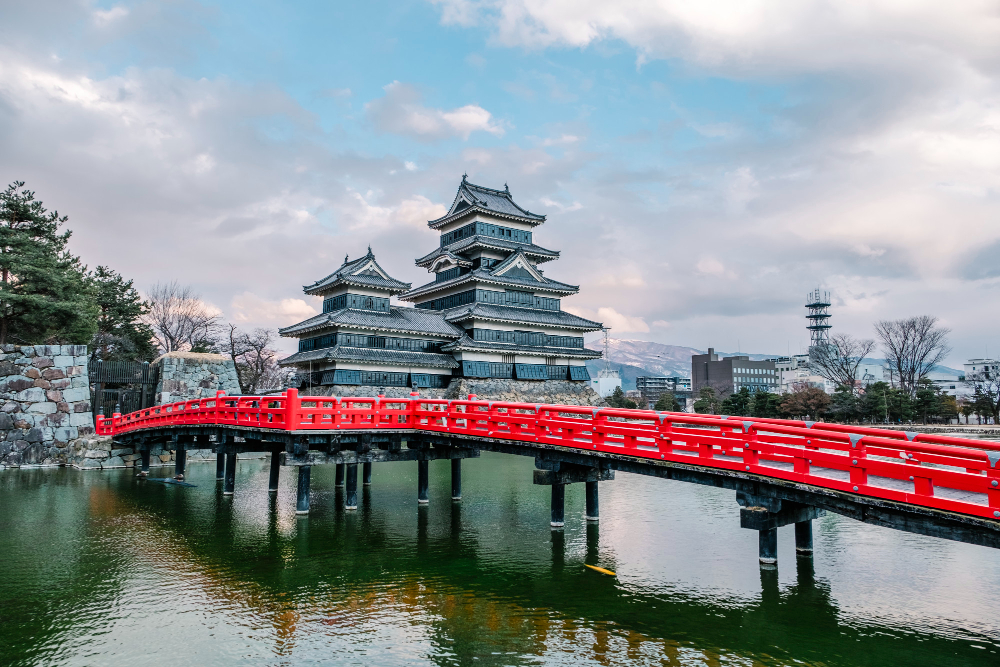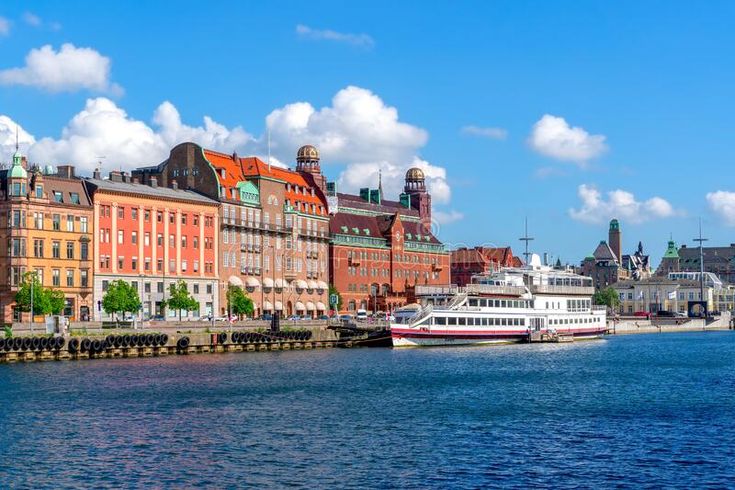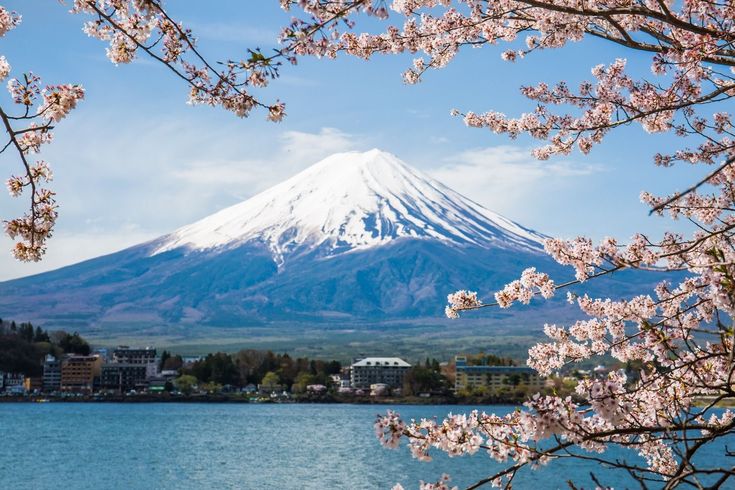Relocating to Japan can be an exciting adventure, offering a unique blend of rich cultural heritage, modern amenities, and beautiful landscapes. For Nigerians considering this move, understanding the best cities to live in, the visa requirements, and the application process is essential. This article provides an in-depth guide on relocating to Japan from Nigeria, covering everything you need to know to make your transition as smooth as possible.
Why Relocate to Japan?
Japan is renowned for its high quality of life, safety, excellent healthcare, and education systems. The country is technologically advanced, offering numerous job opportunities, especially in fields like technology, engineering, education, and healthcare. Additionally, Japan’s rich cultural history, delicious cuisine, and stunning natural landscapes make it an appealing destination for many.
Best Cities to Live in Japan
1. Tokyo
Tokyo, the capital city, is a bustling metropolis known for its skyscrapers, shopping districts, and vibrant nightlife. It is an international hub with numerous job opportunities, particularly in finance, technology, and education. Tokyo also boasts excellent public transportation, making it easy to navigate the city.
Cost of Living:
- Rent (1-bedroom apartment in the city center): ¥120,000 – ¥200,000 per month.
- Utilities (electricity, heating, cooling, water, garbage): ¥10,000 – ¥20,000 per month.
- Groceries: ¥40,000 – ¥60,000 per month.
- Transportation (monthly pass): ¥10,000 – ¥20,000.
- Overall monthly budget: ¥200,000 – ¥300,000.
2. Osaka
Osaka is known for its modern architecture, nightlife, and hearty street food. It is Japan’s third-largest city and offers a more relaxed atmosphere compared to Tokyo. Osaka is an economic powerhouse, providing ample job opportunities, particularly in commerce and industry.
Cost of Living:
- Rent (1-bedroom apartment in the city center): ¥80,000 – ¥130,000 per month.
- Utilities: ¥8,000 – ¥15,000 per month.
- Groceries: ¥35,000 – ¥55,000 per month.
- Transportation (monthly pass): ¥8,000 – ¥15,000.
- Overall monthly budget: ¥150,000 – ¥230,000.
3. Kyoto
Kyoto, famous for its classical Buddhist temples, gardens, imperial palaces, Shinto shrines, and traditional wooden houses, is perfect for those who appreciate history and culture. Though it’s smaller and quieter than Tokyo and Osaka, it offers a high quality of life and numerous academic and research opportunities.
Cost of Living:
- Rent (1-bedroom apartment in the city center): ¥60,000 – ¥100,000 per month.
- Utilities: ¥7,000 – ¥12,000 per month.
- Groceries: ¥30,000 – ¥50,000 per month.
- Transportation (monthly pass): ¥6,000 – ¥12,000.
- Overall monthly budget: ¥120,000 – ¥200,000.
4. Yokohama
Yokohama, located near Tokyo, is Japan’s second-largest city. It is known for its beautiful waterfront, parks, and the iconic Landmark Tower. It offers a more relaxed environment while still providing easy access to the amenities of Tokyo.
Cost of Living:
- Rent (1-bedroom apartment in the city center): ¥80,000 – ¥150,000 per month.
- Utilities: ¥8,000 – ¥15,000 per month.
- Groceries: ¥35,000 – ¥55,000 per month.
- Transportation (monthly pass): ¥7,000 – ¥15,000.
- Overall monthly budget: ¥140,000 – ¥235,000.
5. Fukuoka
Fukuoka is the largest city on the island of Kyushu and is known for its ancient temples, beaches, and modern shopping malls. It’s a vibrant city with a lower cost of living compared to Tokyo and Osaka, making it an attractive option for expatriates.
Cost of Living:
- Rent (1-bedroom apartment in the city center): ¥50,000 – ¥90,000 per month.
- Utilities: ¥6,000 – ¥12,000 per month.
- Groceries: ¥25,000 – ¥45,000 per month.
- Transportation (monthly pass): ¥5,000 – ¥10,000.
- Overall monthly budget: ¥100,000 – ¥170,000.
Visa Requirements for Relocating to Japan
Types of Visas
- Work Visa
- Student Visa
- Dependent Visa
- Specified Skilled Worker Visa
- Highly Skilled Professional Visa
- Investor/Business Manager Visa
Work Visa
For Nigerians looking to work in Japan, a work visa is required. There are several categories, including visas for engineers, instructors, specialists in humanities, and more.
Requirements:
- A job offer from a Japanese company.
- A valid Nigerian passport.
- Educational and professional qualifications relevant to the job.
- Certificate of Eligibility (COE) from the Japanese Ministry of Justice.
Student Visa
Nigerians wishing to study in Japan must obtain a student visa.
Requirements:
- Acceptance letter from a Japanese educational institution.
- Proof of financial stability to support your stay.
- A valid Nigerian passport.
- Certificate of Eligibility (COE).
Dependent Visa
If you have a spouse or parent with a valid Japanese visa, you can apply for a dependent visa.
Requirements:
- Proof of relationship (marriage or birth certificate).
- Proof of financial stability from the sponsoring family member.
- A valid Nigerian passport.
- Certificate of Eligibility (COE).
Specified Skilled Worker Visa
This visa is for individuals with skills in specific industries like construction, agriculture, and healthcare.
Requirements:
- Job offer from a Japanese employer in a specified skilled category.
- Relevant skills and experience.
- Certificate of Eligibility (COE).
Highly Skilled Professional Visa
This visa is for highly skilled professionals in fields such as advanced academic research, specialized technical work, and business management.
Requirements:
- Highly specialized skills and qualifications.
- Job offer from a Japanese employer.
- Certificate of Eligibility (COE).
Investor/Business Manager Visa
For Nigerians looking to start or manage a business in Japan.
Requirements:
- Business plan and proof of substantial investment.
- Proof of business management experience.
- Certificate of Eligibility (COE).
How to Apply for a Visa as a Nigerian
Step 1: Obtain a Certificate of Eligibility (COE)
The Certificate of Eligibility (COE) is issued by the Japanese Immigration Bureau and is required before applying for most long-term visas.
How to Apply:
- The Japanese sponsor (employer, school, family member) applies for the COE on your behalf.
- Provide all necessary documents to your sponsor, including passport copies, photos, job offer letters, or acceptance letters from educational institutions.
- Once the COE is issued, it will be sent to you in Nigeria.
Step 2: Apply for the Visa at the Japanese Embassy in Nigeria
Once you have the COE, you can apply for the visa at the Japanese Embassy in Nigeria.
Required Documents:
- Certificate of Eligibility (COE).
- Completed visa application form (available on the embassy’s website).
- Passport-size photographs.
- Valid Nigerian passport.
- Additional documents (depending on the visa type, such as financial statements, proof of relationship, etc.).
Application Process:
- Submit your application and required documents to the Japanese Embassy in Abuja.
- Pay the visa application fee.
- Attend an interview if required.
- Wait for the visa to be processed (usually takes a few weeks).
Things to Expect While Relocating to Japan
Language Barrier
While English is taught in schools, proficiency varies. Learning basic Japanese can significantly improve your daily life and interactions.
Cost of Living
Japan has a high cost of living, especially in cities like Tokyo and Osaka. Housing, transportation, and food can be expensive, so it’s crucial to budget accordingly.
Housing
Finding accommodation can be challenging due to language barriers and the need for a guarantor. It’s common to use real estate agents or company housing services.
Healthcare
Japan has an excellent healthcare system. Health insurance is mandatory, and most employers provide health insurance for their employees. It’s essential to register for health insurance upon arrival.
Cultural Adaptation
Japanese culture is unique, with distinct social norms and etiquette. Understanding and respecting these cultural differences is vital for a smooth transition. Bowing, removing shoes indoors, and understanding the importance of harmony and respect are essential aspects of daily life.
Transportation
Japan has one of the best public transportation systems in the world. Trains, buses, and subways are punctual, clean, and efficient. Owning a car is not necessary in most urban areas.
Work Culture
Japanese work culture can be demanding, with long hours and a strong emphasis on teamwork and respect for hierarchy. Understanding these cultural nuances can help in adapting to the work environment.
Education
For those relocating with families, Japan offers excellent education systems. International schools are available in major cities, offering curriculums in English and other languages.
Food
Japanese cuisine is diverse and healthy, with a focus on fresh ingredients. Exploring local foods like sushi, ramen, and tempura is an exciting part of living in Japan.
Social Life
Making friends and building a social network can take time due to cultural and language barriers. Joining local clubs, language classes, and community events can help in social integration.
Relocating to Japan as a Nigerian can be a rewarding experience, offering a blend of modern conveniences, rich culture, and numerous opportunities. Understanding the best cities to live in, meeting the visa requirements, and preparing for cultural differences are crucial steps in ensuring a successful transition. With careful planning and an open mind, your move to Japan can be the start of an exciting new chapter in your life.









Leave a Comment